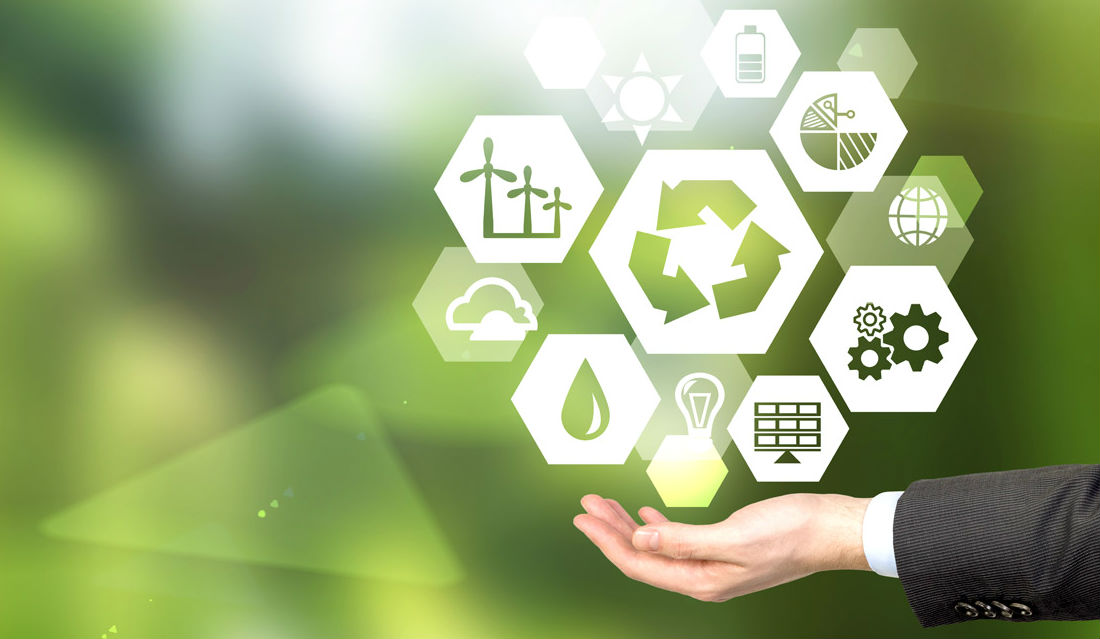Sustainability has become a central theme in debates about the future of the planet, involving not only environmental issues, but also economic and social ones. To ensure that future generations can enjoy a healthy world, we need to adopt conscious practices in the present. In this post, we will explore the importance of a Sustainability Course, its benefits and how it can empower individuals and companies to act responsibly towards the environment.

What is Sustainability?
Sustainability is the concept that seeks to balance the current needs of society with the preservation of resources for future generations. It is an effort to ensure that economic and social development does not compromise the environment, allowing the planet to continue to provide the resources necessary for life.
One Sustainability Course offers a deep understanding of this concept, helping to develop a mindset focused on practices that use natural resources intelligently. The course provides a comprehensive vision of how society can grow sustainably, minimizing environmental impacts.
In this course, students will learn how to apply these practices in a variety of contexts, from efficient water and energy use to promoting conscious consumption. In addition, it is essential to understand how daily actions can directly influence the environment and climate change.
Importance of the Sustainability Course
Sustainability is vital not only to protect the environment, but also to promote a more balanced and fair economy. A Sustainability Course provides the knowledge needed to adopt practices that reduce environmental impact while creating more efficient economic development.
The course trains professionals to act ethically and conscientiously in their areas of expertise. Today, both companies and individuals are required to adopt more sustainable practices, and having training in this area can open up new opportunities in the job market.
With the knowledge acquired, it is possible to implement sustainability programs in corporations, schools and communities, promoting a real change towards the future. Among the topics covered are: Corporate Sustainability, Environmental Ethics It is Renewable Energy, all fundamental to building a more sustainable society.
Environmental Preservation Programs in Brazil
In Brazil, several environmental preservation programs aim to protect natural resources and promote responsible use of the environment. These programs aim to balance economic development with ecosystem conservation, and many of them are studied in a Sustainability Course.
An example is the program Environmental Protection Areas (APA), which delimits regions where the use of natural resources must be done in a controlled manner, preserving local biodiversity. Another relevant program is the National Solid Waste Plan, which encourages the practice of selective collection and the correct disposal of waste, topics widely covered in the course.
These programs are essential for Brazil to continue to be a leading country in environmental conservation, and understanding how they work is one of the first steps for those who want to work in this area. Sustainability Course provides a detailed overview of the main national and international programs that promote environmental protection.
Corporate Sustainability and Environmental Ethics
Businesses play a crucial role in implementing sustainable practices, and Corporate Sustainability is one of the central topics in any Sustainability Course. This involves adopting business practices that minimize environmental impact while promoting economic development.
During the course, students learn the importance of ethical management that takes the environment into account when making business decisions. Sustainable companies are those that understand that it is possible to grow economically without degrading natural resources, by implementing measures such as:
- Waste reduction;
- Conscious use of energy;
- Promotion of recycling and reuse of materials.
Additionally, the course explores the Environmental Ethics, which deals with the responsibilities of companies and individuals towards the environment. Environmental ethics is an essential component of sustainability, as it involves adopting a conscious and responsible stance in all economic activities.

Renewable Energy and Sustainable Consumption
Another key point of a Sustainability Course is the transition to renewable energy. The use of fossil fuels, such as oil and coal, is one of the biggest contributors to climate change, and one of the most promising solutions to this problem is investing in clean energy, such as solar, wind and biomass.
During the course, students will learn how renewable energy can be implemented in different sectors, from homes to large-scale industries. In addition to helping reduce greenhouse gas emissions, renewable energy helps diversify the energy matrix, reducing dependence on non-renewable sources.
Another topic covered is the Sustainable Consumption, which involves choosing products and services that have a lower environmental impact. The course teaches how consumers can make more conscious decisions by opting for eco-friendly products, reducing food waste and prioritizing companies that have sustainable practices.
Environmental Impacts and Selective Collection
One of the central themes in the Sustainability Course is the understanding of the environmental impacts caused by human activities. Air pollution, soil degradation, deforestation and contamination of water bodies are just some of the problems that the planet currently faces.
Understanding environmental impacts is essential to finding solutions that can mitigate them. The course provides tools to identify these impacts and develop strategies to reduce resource consumption and minimize waste generation.
In this context, the Selective Collection is also a highly relevant topic. The course covers how to properly separate waste, recycle materials and reduce the amount of trash sent to landfills. Selective collection is one of the simplest and most efficient ways to contribute to sustainability, and its large-scale implementation can significantly reduce environmental impacts.
One Sustainability Course is essential for those who want to make a difference in the future of the planet. It offers a complete understanding of how natural resources can be used intelligently, promoting economic development without compromising the environment.
When studying topics such as Corporate Sustainability, Environmental Ethics, Renewable Energy It is Sustainable Consumption, students acquire the knowledge necessary to implement sustainable practices in their lives and careers, becoming agents of change in their communities.
Check out other interesting facts about recycling clicking here.
Learn how to make art by recycling, Click here.




I loved it, I'm going to put everything I learn into practice
Thanks! The Recycling Sector and the environment thank you!!